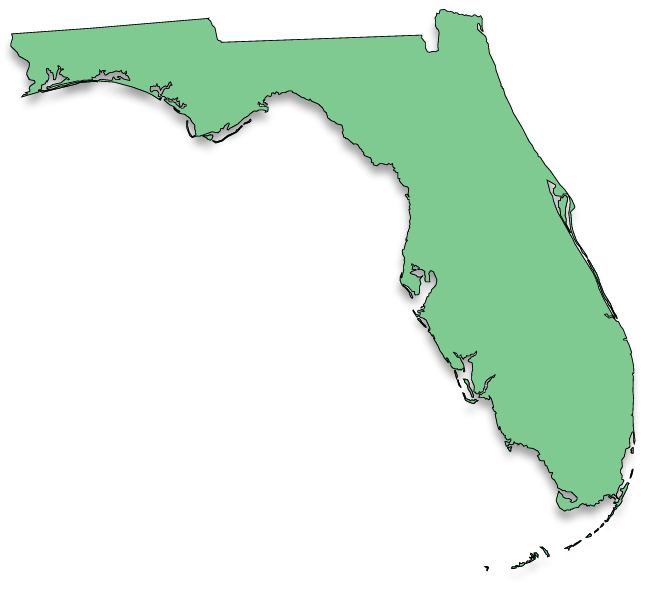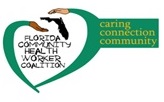|
OPEN ENROLLMENT IS OVER BUT ....
MEDICAID AND CHIP ENROLLMENTS CAN OCCUR ALL YEAR!
|
LUNCH &
LEARN CONFERENCE CALL
|
Date
|
Friday, July 27th 2018
|
|
Time
|
12:30-1:30 PM
|
From your computer, tablet or smartphone:
Or, you can dial +1 (872) 240-3311
Access Code: 307-260-925
|
|

New Jersey Gov. Phil Murphy (D) on Wednesday night signed into law a bill imposing an individual mandate for health insurance to replace a federal requirement that Congress repealed. The move makes New Jersey the second state to require health-care coverage and impose a penalty on residents without it. Massachusetts imposed the requirement as part of its health reform law in 2006. The Hill
As if on cue, a report issued Monday was critical of a veterans health-care program that is being replaced by one that President Trump will sign into law Wednesday. The current, defective program will stay in place for another year while the new one is readied. That one-year transition to the operation under the new VA Mission Act is a good thing, because the hurried ramp-up to the disparaged Veterans Choice Program contributed to its downfall. Washington Post
Even health insurers that don't expect many of their plan members to drop insurance coverage after the individual mandate penalty is zeroed out still may have to raise individual market premiums in 2019 as their payments from the ACA's risk adjustment program change thanks to the mandate loss. Buffalo, N.Y.-based insurer Independent Health doesn't expect a large number of its 5,000 ACA exchange members to drop their coverage when the individual mandate penalty is effectively repealed starting in 2019. Its population skews older and sicker, and most members need their insurance coverage. Its average member is about 49 years old, and about half receive federal premium subsidies. Modern Healthcare
The report from program trustees says Medicare will become insolvent in 2026 - three years earlier than previously forecast. Its giant trust fund for inpatient care won't be able to fully cover projected medical bills starting at that point. The report says Social Security will become insolvent in 2034 - no change from the projection last year. The warning serves as a reminder of major issues still languishing while Washington plunges deeper into partisan strife. Because of the deterioration in Medicare's finances, officials said the Trump administration will be required by law to send Congress a plan next year to address the problems, after the president's budget is submitted. Associated Press
Calling it "a constitutional position ... not a policy position," Azar sidestepped grilling on whether he agreed with a legal brief filed last week by Justice Department attorneys stating they would not defend the Affordable Care Act in a federal lawsuit by Texas and 19 other Republican-led states. During a hearing before the Senate Health, Education, Labor and Pensions Committee that was mainly about the president's blueprint to address drug prices, Sen. Maggie Hassan (D-N.H.) told Azar that Justice's legal position is "like some kind of a sick joke." The administration argues that the ACA's individual mandate, requiring most people to carry health insurance, will become unconstitutional next year - and, with it, the law's insurance protections for consumers. Washington Post
A sweeping new rule issued Tuesday by the Trump administration will make it easier for small businesses to join forces and set up health insurance plans that circumvent many requirements of the Affordable Care Act, cutting costs but also reducing benefits. President Trump, speaking at a 75th-anniversary celebration of the National Federation of Independent Business, said the new rule would allow small businesses to "escape some of Obamacare's most burdensome mandates" by creating new entities known as association health plans. New York Times
President Trump plans to propose a reorganization of the federal government as early as Thursday that includes a possible merger of the Education and Labor Departments, coupled with a reshuffling of other domestic agencies to make them easier to cut or revamp, according to administration officials briefed on the proposal. The plan, which will most likely face significant opposition in Congress from Democrats and some Republicans, includes relocating many social safety net programs into a new megadepartment, which would replace the Department of Health and Human Services and possibly include the word "welfare" in its title. New York Times
|

A government agency reports that most Florida nursing homes and assisted-living facilities do not have backup power despite new requirements enacted after a dozen people died in a sweltering center following Hurricane Irma. The state Agency for Health Care Administration says only 48 nursing homes and 91 assisted-living facilities have installed equipment and had state inspections as of May 25. The new rules that went into effect Friday require all facilities to have backup power for cooling for at least 96 hours. Associated Press
Newly released data from Puerto Rico's government bolsters a conclusion reached by several studies that the death toll from last September's Hurricane Maria vastly exceeds the official figure of 64. The number of deaths on the island from September to December 2017 surpassed the average for the same period over the previous four years by more than 1,400, according to mortality data released by the government Tuesday. The figures show the numbers of fatalities in September and October last year-2,928 and 3,040, respectively-are greater than the tally for any month going back to January 2013. Wall Street Journal
|
Use the correct & complete CAC & NAV # on all applications!
***13 characters (FLCAC or FLNAV + A/B/C/D + 2 digit contract # + 5 digit CAC or NAV # ***
*** CAC or NAV # is issued by your employer***
|
IMMIGRATION
Attorney General Jeff Sessions' decision sets a high bar for victims of crime to qualify for asylum protections. Not only must the government of the home country be unable or unwilling to help the victims, but "the applicant must show that the government condoned the private actions or demonstrated an inability to protect the victims."
The Trump administration Monday overturned asylum protections for domestic violence and gang violence victims in a ruling that could potentially prevent tens of thousands of immigrants from getting protection in the US. The ruling is the latest instance of Sessions taking full advantage of his authority over the immigration courts -- a separate court system designed by law to be under the auspices of the Justice Department. The attorney general functions as a one-person Supreme Court in the system, in addition to hiring and evaluating the lower court judges themselves.
CNN News
The Trump administration has detained 2,322 children 12 years old or younger amid its border crackdown, a Department of Health and Human Services official told Kaiser Health News on Wednesday. They represent almost 20 percent of the immigrant children currently held by the U.S. government in the wake of its latest immigrant prosecution policy. Their welfare is being overseen by a small division of the Department of Health and Human Services - the Office of Refugee Resettlement (ORR) - which has little experience or expertise in handling very young children.
Kaiser Health News
A new executive order signed by President Trump lays out steps to end the separation of immigrant families at the U.S.-Mexico border. We see this as a tacit admission by the Trump administration that many of its previous claims about family separations were bunk. Until Trump signed the order June 20, the administration was insisting that it didn't have a policy of separating families (false), that several laws and court rulings were forcing these separations (false), that Democrats were to blame (false), that only Congress could stop family separations (false) and that an executive order wouldn't get the job done. The Washington Post
The business of housing, transporting and watching over migrant children detained along the southwest border is not a multimillion-dollar business. It's a billion-dollar one. The nonprofit Southwest Key Programs has won at least $955 million in federal contracts since 2015 to run shelters and provide other services to immigrant children in federal custody.
The New York Times
Last month, there was a lot of discussion on the "public charge" determination for
lawful immigrants. For clarity, "public charge" determinations are only made when entering the US or applying for lawful permanent residence (ie., "green card"). The rule - which is already being used when granting entry visas - defines "public charge" any alien that has received cash or non-cash government assistance and it extends to their tax and/or household dependents. This could include Medicaid, CHIP, SNAP, TANF, EITC and APTC. The exceptions to the rule include asylees, refugees, victims of domestic violence or human trafficking. The determination of "public charge" can be grounds for denying entry to the US or lawful permanent residence. The harm is that many families choose to disenroll from important safety-net programs even though the federal government researches as far back as 2 years. Many FQHCs are also financially destabilized by this. Send your
non-identifiable stories that illustrate the negative impact of this policy to
FACHC Immigration Stories
TIP:
Network For Good has great information on storytelling as a tool for supporting a cause and improving financial support.
|
PLAN YEAR 2018 TRAINING GOES DARK
The 2018 Assister Certification Training that is hosted on the Marketplace Learning Management System (MLMS) was taken offline at 6:00 p.m. (EST) on Monday June 18, 2018. During this "go-dark" period, assisters will not be able to access the certification training. We anticipate that the 2019 Assister Certification Training will be available to CACs in July and to Navigators after the next round of Navigator grants are awarded to align with the grant cycle.
CDO APPLICATION REFRESH PROCESS
- Federally Qualified Health Centers in Florida already receive funding for enrollment assistance as part of their annual funding allocation. There is no grant and there is no new money.
- All Florida Certified Designated Organizations authorized to provide enrollment assistance should have completed the CDO Application Refresh process by April 24th.
- Once the CDO Application Refresh process is completed, the CDO will receive a new identification number.
- No enrollment assistance may be provided for Plan Year 2019, without the new CDO identification number.
- All Certified Application Counselors must satisfactorily complete the annual on-line training for Plan year 2019.
- Upon completing training, new CAC certificates and new CAC numbers must be issued based on the new CDO identification number.
- If the chief administrator at your CDO did not receive and complete the invitation to refresh your CDO Application, please email [email protected] . Failure to do complete the process by the deadline will result in your deactivation.
NEW HARDSHIP EXEMPTIONS
On April 9th 2018, CMS released guidance on new hardship exemptions. The guidance lays out examples of circumstances that fall under the Federally-facilitated Marketplace's (FFM) hardship exemption policy that can help consumers facing limited issuer options or other circumstances preventing them from purchasing health insurance. Consumers who wish to apply should submit a
Hardship Exemption Application Form
to the Marketplace. The new hardship exemptions cover the following circumstances:
- A consumer lives in a county, borough, or parish in which no qualified health plan (QHP) is offered through the FFM. A consumer will receive an exemption from the individual shared responsibility payment for one plan year (plus the month before and after the plan year) if no plans are offered. All counties currently have at least one plan offering coverage, so this exemption is not yet needed.
- A consumer lives in a county, borough, or parish in which there is only one issuer offering coverage through the FFM and can show that the resulting lack of choice had prevented them from obtaining coverage under a QHP. This exemption would apply for one plan year (plus the month before and after the plan year) if only one plan is offered.
- A consumer has experienced a hardship in obtaining coverage because all affordable plans offered through the FFM in the person's county, borough, or parish provide coverage for abortion, which is contrary to one's beliefs and those lack of options make it difficult to find an affordable health plan
- A consumer experiences personal circumstances that create a hardship in obtaining health insurance coverage under a QHP, such as when a person needs specialty care but the affordable plans offered through the FFM in the person's county, borough or parish do not provide access to needed specialty care.
HOW THE NEW TAX LAW AFFECTS MAGI
- Dependent Filing Requirement Raised. The new law changes the income at which a dependent must file a tax return, meaning fewer dependents will need to file and more families can exclude a dependent's earnings from their household income. Starting this year, a single dependent under age 65 will be required to file if earned income is greater than $12,000, compared to $6,350 in 2017. (Note: The rules about who can be claimed as a dependent don't change, even though personal exemption deductions are eliminated.)
- Income and Deduction Changes. The new law takes alimony off the tax return altogether for newly divorced or separated couples. Student loan debt that is forgiven due to the death or disability of the student is no longer included as income, lowering MAGI for the affected students. Moving expenses are no longer deductible, except by members of the Armed Forces.
For more information on how the new tax law affects MAGI,
click here.
NEW SEP INFORMATION
In a recently finalized rule, the Centers for Medicare & Medicaid Services (CMS) made several changes to special enrollment periods that took effect on June 18. To reflect these changes, the Center for Budget and Policy Priorities has updated their Special Enrollment Period Reference Chart. The changes include:
- SEP for loss of pregnancy-related coverage provided through CHIP. An SEP is now available for the loss of coverage provided through the Children's Health Insurance Program (CHIP) "unborn child" option, which only covers pregnancy-related services and is not considered minimum essential coverage.
- Additional exemption from the prior coverage requirement for people living in bare counties. Some SEPs require that a person be enrolled in some form of minimum essential coverage for at least 1 day in the 60 days prior to experiencing a qualifying event. People who live in a service area with no plans sold in the Marketplace during the most recent available open or special enrollment period or during the 60 days prior to a qualifying event are exempt from this prior coverage requirement.
- Coverage effective date change for SEP for birth/adoption/placement in foster care/court order. People eligible for this SEP can now choose to begin new coverage on the first day of the month following plan selection (instead of the first day of the month following the birth/adoption/placement in foster care/court order).
To view the SEP Reference Chart, click here.
APPEAL PROCESS
There are 2 different kinds of appeals - those to the Marketplace and those to the insurer. Click here to see what each one can cover.
|
|
The Centers for Medicare & Medicaid Services (CMS) developed its Medicaid and Children's Health Insurance Program (CHIP) Scorecard to increase public transparency about the programs' administration and outcomes.
States and CMS can use the Scorecard to drive improvements in areas such as State and federal alignment, beneficiary health outcomes and program administration. The Scorecard includes measures voluntarily reported by states, as well as 3 federally reported measure areas:
|

8th Annual CHW Coalition Summit
Touching Lives, Promoting Equity and Transforming Communities
Sept. 14-15, 2018
Holiday Inn Orlando International Airport
5750 T.G.Lee Blvd., Orlando FL
IMPORTANT PERSONAL REQUEST!
I know that many of you became Community Health Workers at my encouragement. However, in 2016, centers only reported 20.70 CHW FTEs in the whole state. In 2017, that number was even less! I know, that there are many CHWs in our centers. But the Uniform Data System does not reflect that. The same goes for Medical Interpreters. Please help me figure this out by completing this 2018 CHW-CMI Staffing Survey.
|
All Plan Year 2018 Florida Enrollment Assistance Personnel
PLEASE REGISTER NOW!
|

When does the termination of the penalty for not having health insurance take effect?
Some sweeping changes were made to the tax code early into the current administration. Although there was a suggestion that the IRS was instructed not to pursue individuals who chose not to have health coverage, the individual mandate does not "go away" until tax year 2019 (ie., income tax return deadline April 2020). CNBC News
I have migrant worker consumers who are unable to complete their tax returns because their multiple employers have not submitted their earnings to the federal government and the 1095A Forms do not appear in their Marketplace account. This puts their continued APTC at risk.
Individuals can file an income tax return showing an estimated income and subsequently file an amended return when they receive their W2 information. As for the missing 1095 Forms, this is what I am told by my federal contacts:
It sounds like they have some forms showing some months of coverage but may be missing forms for other months. There are some instances where manual corrections to the 1095A Form are made, and the forms take a couple of weeks to be uploaded to the account. These are also mailed to the address on file for the consumer. In other instances, the Marketplace may have to process updates to the consumer's coverage that are reported by the issuer prior to the form being uploaded to the account. For example, if a consumer had coverage reinstated by an issuer late in the year, it usually takes two to three months for the issuer to report the change and for the Marketplace to process that change.
In either situation, if the consumer contacts the Marketplace, the call center representative will submit an inquiry directly to the folks who work on 1095A issues. Typically, if the consumer hasn't received the forms by late February or March, they can go ahead and contact the Marketplace call center to get that process started.
A consumer called in. She has a daughter in CA who is enrolled in a Marketplace plan and who is moving to FL in a few months. Should she contact the Marketplace in California/Florida about her move and what time frame?
She should contact the Marketplace in CA to ask them to terminate her coverage on the last day she will be be CA.That's a "prospective" termination. It's important to know the difference between "retrospective" and "prospective" enrollments. She can also "
prospectively" enroll in a FL plan effective the first day she will be in this state.
Does the Call Center give you a headache?
Got a question and need a reliable answer FAST?
|
|
|
|
|